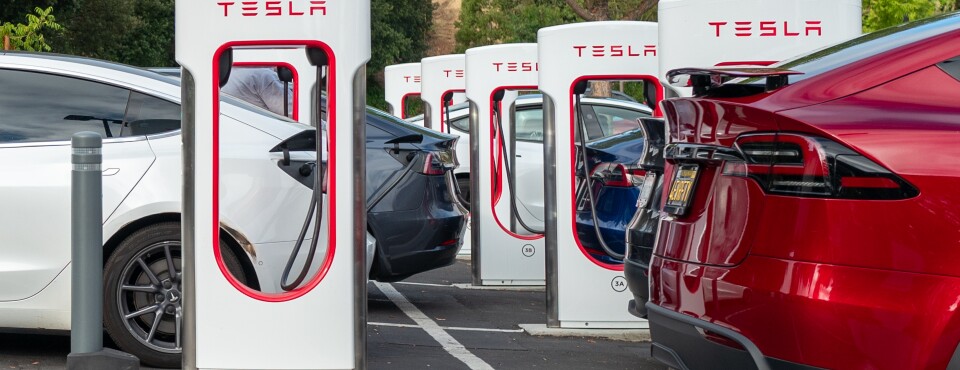Car Dealers Intensify Fight Against Electric Vehicle Regulations

Table of Contents
Economic Concerns Fueling Dealer Opposition
The shift towards EVs presents significant economic challenges for car dealerships, impacting their profitability and operational models. These concerns are a major driver of the opposition to stringent electric vehicle regulations.
Impact on Profit Margins
The transition to EVs significantly impacts dealerships' revenue streams. Traditional internal combustion engine (ICE) vehicles generate substantial revenue through service and repair, a significant portion of a dealership's profit. EVs, with their simpler mechanics and fewer moving parts, drastically reduce these service opportunities.
- Reduced service revenue: EVs require less frequent and less extensive maintenance compared to ICE vehicles.
- Higher initial investment in EV infrastructure: Dealerships need to invest in specialized equipment and training to service and maintain EVs.
- Potential for lower profit margins per vehicle: The higher upfront cost of EVs can sometimes translate to lower profit margins for dealerships, especially in the initial stages of adoption.
The reliance on traditional service revenue is a cornerstone of the dealership business model. The dramatic reduction in this revenue stream due to the increased adoption of EVs poses a considerable financial threat.
Inventory and Sales Challenges
Managing EV inventory and sales presents unique challenges for dealerships. The transition requires significant adjustments to their operational strategies.
- Higher upfront costs of EVs: The initial investment required to stock EVs is higher compared to ICE vehicles.
- Slower sales cycles compared to ICE vehicles: Consumer adoption of EVs is still developing, resulting in potentially slower sales cycles.
- Consumer hesitancy due to range anxiety or charging infrastructure concerns: Many potential buyers remain hesitant due to concerns about limited range, charging infrastructure availability, and charging times.
Effectively stocking and selling EVs requires specialized training, equipment for charging and maintenance, and a deep understanding of consumer concerns related to range anxiety and charging infrastructure. This adds complexity and cost for dealerships.
Arguments Against Stringent EV Mandates
Dealerships argue that current electric vehicle regulations are premature, citing concerns about market readiness and consumer preparedness.
Concerns about Market Readiness
A key argument against stringent EV mandates centers on the current state of the market. Dealerships express concern over several factors:
- Insufficient charging infrastructure in many areas: The lack of widespread, reliable charging infrastructure hinders EV adoption and consumer confidence.
- High purchase prices of EVs compared to gasoline vehicles: The higher cost of EVs remains a significant barrier for many potential buyers.
- Limited EV models to choose from: The range of EV models available is still limited compared to the variety of ICE vehicles.
Dealers argue that pushing for rapid EV adoption before addressing these fundamental issues will harm the market, rather than help it grow organically.
Challenges in Consumer Education and Adoption
Dealerships highlight the significant need for greater consumer education regarding EVs to overcome misconceptions and foster wider acceptance.
- Misconceptions about EV range, charging times, and maintenance needs: Many potential buyers hold inaccurate beliefs about the practicality and usability of EVs.
- Lack of readily available information for potential buyers: Clear, accessible information about EVs and the charging infrastructure is still lacking in many areas.
Dealerships believe they have a crucial role to play in educating consumers and dispelling myths about EVs, thereby driving wider adoption. However, this requires investment in training and resources, further adding to their financial burdens.
Strategies Employed by Dealerships in the Fight
Facing increasing pressure from electric vehicle regulations, dealerships are employing various strategies to influence policy and public perception.
Lobbying Efforts and Political Action
Dealerships are actively engaging in lobbying activities to influence the regulatory landscape:
- Contributions to political campaigns: Financial contributions are made to support candidates who align with their interests.
- Engagement with lawmakers and regulatory agencies: Dealerships are actively engaging in dialogue with lawmakers and regulatory bodies to voice their concerns.
These lobbying efforts aim to shape the direction of electric vehicle regulations and mitigate the negative economic impact on dealerships.
Public Relations Campaigns and Messaging
Dealerships are employing public relations strategies to shape public perception of EV regulations:
- Advertising campaigns: Targeted advertising campaigns aim to highlight the challenges associated with rapid EV adoption.
- Press releases and statements: Dealerships are releasing statements and press releases to counter negative narratives surrounding their opposition to stringent regulations.
By strategically managing their public image and messaging, dealerships aim to influence public opinion and create a more balanced discussion around the challenges of EV adoption.
Conclusion
Dealerships are facing significant economic challenges due to the increasing prevalence of electric vehicle regulations. Their concerns center around profit margins, inventory management, market readiness, and consumer education. They are actively engaging in lobbying and public relations efforts to influence the regulatory landscape. The future of the automotive industry hinges on a balanced approach to electric vehicle regulations. Open dialogue and collaboration between policymakers, car dealerships, and EV manufacturers are crucial to ensure a smooth and successful transition. Further discussion is needed to address concerns around electric vehicle regulations and to find solutions that support both the industry and environmental goals. Let's continue the conversation about finding effective solutions to navigate the challenges of electric vehicle regulations.

Featured Posts
-
 Regional Coach Of The Year Valley High Schools Coaching Excellence
May 30, 2025
Regional Coach Of The Year Valley High Schools Coaching Excellence
May 30, 2025 -
 First Nations Child Welfare In Manitoba A 21 Year Analysis Of Cfs Intervention Rates
May 30, 2025
First Nations Child Welfare In Manitoba A 21 Year Analysis Of Cfs Intervention Rates
May 30, 2025 -
 Gambling On Calamity The Growing Concern Over Wildfire Betting Markets
May 30, 2025
Gambling On Calamity The Growing Concern Over Wildfire Betting Markets
May 30, 2025 -
 Ostavaytes Doma Vazhnoe Soobschenie Ot Politsii Izrailya
May 30, 2025
Ostavaytes Doma Vazhnoe Soobschenie Ot Politsii Izrailya
May 30, 2025 -
 Exclusion De Marine Le Pen En 2027 Jacobelli Repond A Hanouna
May 30, 2025
Exclusion De Marine Le Pen En 2027 Jacobelli Repond A Hanouna
May 30, 2025
Latest Posts
-
 Rise In Covid 19 Cases A New Variant Spreads Internationally
May 31, 2025
Rise In Covid 19 Cases A New Variant Spreads Internationally
May 31, 2025 -
 The Texas Panhandle Wildfire A Year Of Recovery And Lessons Learned
May 31, 2025
The Texas Panhandle Wildfire A Year Of Recovery And Lessons Learned
May 31, 2025 -
 Texas Panhandles Resilience A Year After The States Largest Wildfire
May 31, 2025
Texas Panhandles Resilience A Year After The States Largest Wildfire
May 31, 2025 -
 Deadly Wildfires Continue To Threaten Eastern Manitoba Communities
May 31, 2025
Deadly Wildfires Continue To Threaten Eastern Manitoba Communities
May 31, 2025 -
 Eastern Manitoba Wildfires Rage A Critical Update On The Emergency
May 31, 2025
Eastern Manitoba Wildfires Rage A Critical Update On The Emergency
May 31, 2025
